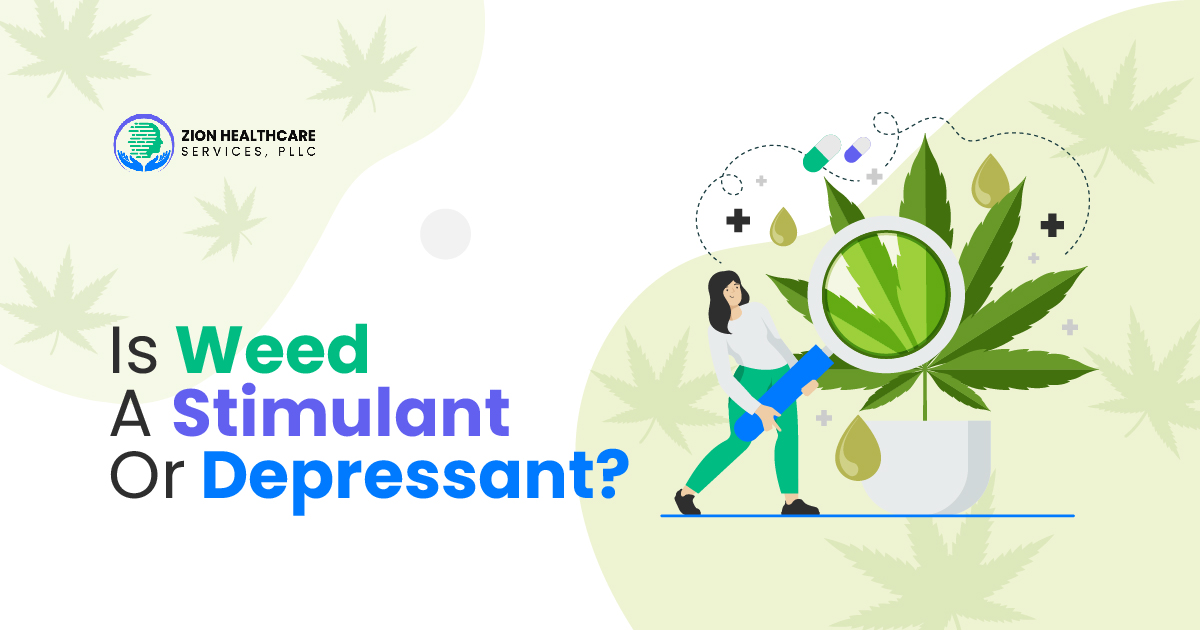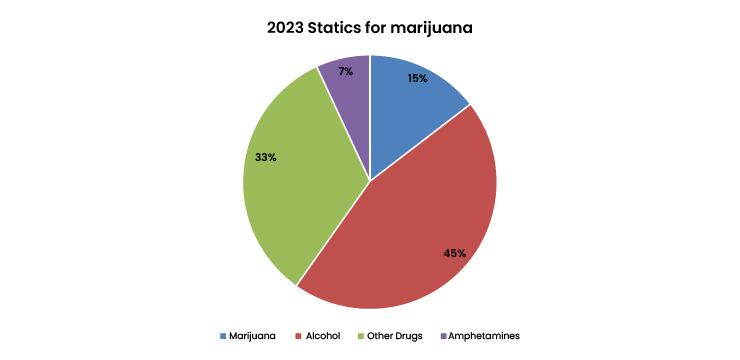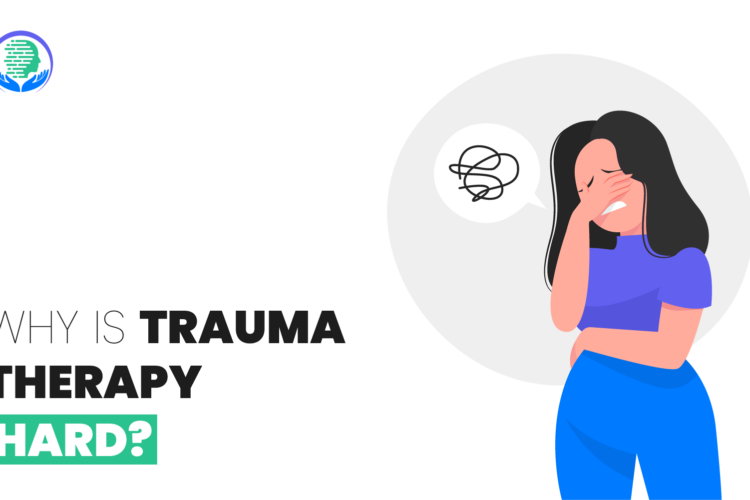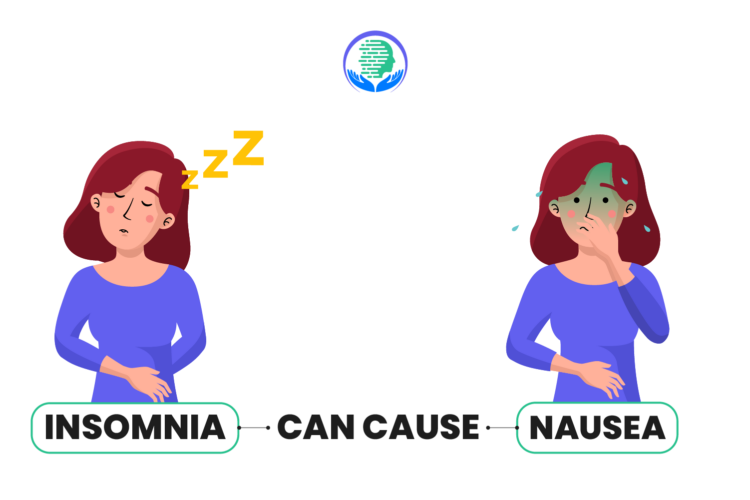
Cannabis, commonly known as weed, has been a subject of debate and discussion for decades. It has a complex nature, varied uses, and the legal and societal implications surrounding its consumption.
Whether weed makes you sleepy or energetic depends on things like how much you use and what type it is. One of the questions that often arises is weed a stimulant or depressant. Let’s find the hidden facts that either weed is a stimulant or a depressant.
Moreover, weed has stuff like THC that can do different things. THC is said to slow your nervous system down and usually causes relaxing and tired feelings from lots of it.
However, some find lower doses or certain types perk them up by helping mood, energy, and appetite.
Even so, most doctors say when using a lot, weed acts more as a depressant because it calms brain and body functions down.
If you’re struggling with dependence on weed or any other substance due to feelings of anxiety or depression and you’re looking to break free from it. The good news is that you’re not alone, and help is available.
Zion Healthcare Services is with you to assist and take you out of the depression and anxiety.
Is Weed a Stimulant or Depressant? Fact About it
Is weed a stimulant or depressant? No need to be curious about it, as it depends on many factors. It contains THC, a compound that binds to receptors in the brain and body to slow communication between neurons.
Furthermore, it is considered a depressant; different doses and strains can produce varying effects. High doses consistently depress the central nervous system and slow functions like breathing and heart rate.
However, low to moderate amounts may temporarily elevate mood and increase appetite for some, exhibiting some stimulant-like qualities.
If you’re dealing with anxiety and want to overcome it, feel free to contact us without any hesitation!
What are the Main Drug Types?
Drugs are typically classified based on their effects and characteristics, dividing them into four main categories:
Depressants: These substances slow down brain function; examples include alcohol, alprazolam (Xanax), and barbiturates.
Stimulants: These drugs enhance mood, alertness, and energy but can be highly addictive. Examples include cocaine, methamphetamine, and ADHD medications.
Hallucinogens: This category alters perception by changing the communication between nerve cells in the brain. Examples are LSD, psilocybin, and MDMA.
Opiates: Powerful painkillers that induce euphoria and are highly addictive. Examples include heroin, morphine, and prescription painkillers.
Cannabis, or weed, does not neatly fit into one of these categories due to its variable effects from person to person. Different strains and types of cannabis can produce diverse effects.
Drug Type Chart
The example for each drug includes;
|
Depressant |
Stimulant |
Hallucinogen |
|
alcohol |
amphetamines | lysergic acid diethylamide |
|
marijuana |
marijuana |
marijuana |
|
benzodiazepines |
cocaine |
dimethyltryptamine (DMT) |
| flunitrazepam (Rohypnol) | nicotine |
psilocybin |
Weed as a Depressant
Stimulants and depressants are like opposites. Stimulants, such as energy drinks or certain medications, can make your heart beat faster and your breathing speed up. They also make you feel happier right after you take them.
On the other hand, depressants, like some medicines or alcohol, have a calming effect, making you feel relaxed. Stimulants give you more energy and help you focus, while depressants make you chill and can even slow you down.
Understanding these differences helps us see how these things affect our bodies and minds differently.
However, depressants, like some medicines or alcohol, can sometimes bring unwanted effects in the short term. These might include;
- Slurred speech
- Lightheadedness
- Blurred vision
- Short-term memory loss
- Dizziness
- Nausea
- Confusion
- Reduced motor coordination
- Low blood pressure
- Slowed breathing
Weed, or cannabis, brings about various effects, both positive and negative. It includes;
- Increased heart rate
- Nausea
- Dry mouth
- Detachment from self or environment
- Altered sense
- Loss of control
Weed as a Stimulant
are you curious to know about is weed a stimulant or depressant? if yes, no need to take the strain at all! you’ll get the possible solution here.
Stimulants tend to have the opposite effects compared to depressants. They frequently cause your heart to beat faster, elevate blood pressure, and speed up breathing for some individuals. Stimulants may also temporarily lift mood, especially soon after ingestion.
Whereas depressants tend to induce feelings of sleepiness or tranquility, stimulants typically produce sensations of wakefulness and vigor. Stimulants may also aid in lengthening focus and concentration.
However, stimulant use is not without risk as it can potentially lead to negative and occasionally hazardous consequences such as:
- Increased anxiety, fear, or panic
- Racing thoughts or paranoia
- Aggression or violence
- Irregular heartbeat
- Seizures
- Chest pain
- Nausea or vomiting
- Dizziness or weakness
- Overheating or dehydration
Weed as a Hallucinogen
Some people think weed makes you see or hear things that aren’t there, but not everyone experiences this. These unusual experiences, like feeling time differently, are part of what we call hallucinations. It is when your senses play tricks on you, making you see or hear things that aren’t real.
Similarly, it’s important to know that hallucinations and paranoia, which are feeling overly suspicious, are not the same.
Thus, hallucinations are about seeing or hearing things that aren’t there, while paranoia is having false ideas and being suspicious.
Imagine you’re walking, and because of a hallucination, the person in front of you seems like an animal instead. On the other hand, if you’re feeling paranoid, you might believe that person is following you to hurt you.
Hallucinogens, like a weed, can also bring other changes, such as:
- Feeling like time or space is different
- Losing control over your body movements
- Having a faster heartbeat
- Feeling sick in the stomach
- Having a dry mouth
- Feeling disconnected from yourself or your surroundings
Because weed can cause all these effects, some people and groups label it as a hallucinogen.
Statics for Marijuana in the US

According to some online questionnaire surveys, the marijuana intake percentage is 15.98%, alcohol is 45%, other drug types is 33% and amphetamines is 15% in the year 2023.
A Place to Recover
If you’re feeling down and stressed, talking to someone who can help is a good idea. At Zion Healthcare Services, we’re experts in dealing with feeling too anxious or sad.
We have two main ways to help. One way is through medicine, which can make your brain feel better. The other way is by talking to someone about what’s happening in your head and heart.
Together, these things can make a big difference and help you feel better. So, if you’re having a tough time, reaching out to our professionals like Zion Healthcare Services can be a smart move to get the support you need.
Takeaway
Marijuana can bring about diverse psychological and physical effects, and these effects differ from one individual to another. While it may make some people feel tired or relaxed, others might experience increased energy and alertness. So, the discussion about is weed a stimulant or depressant comes to end with some logical points.
Moreover, for some individuals, marijuana can be beneficial in dealing with mental health concerns like anxiety and depression. However, for others, it may contribute to anxiety throughout use.
Therefore, marijuana can be divided as a depressant, stimulant, or hallucinogen based on its impact on different people.
FAQs
Is weed like an antidepressant?
While some research has found that marijuana may help relieve depression or anxiety for some people, it has not been proven to be as effective as prescribed antidepressant medications. More research is still needed on weed’s precise impact on mental health conditions.
Is CBD a stimulant or depressant?
CBD is not a stimulant nor a depressant. As a non-intoxicating compound found in cannabis, CBD does not directly stimulate the central nervous system or induce feelings of sleepiness like most depressants. Its effects are thought to be more balanced.
Is alcohol a stimulant or depressant?
Alcohol is a depressant. It slows down the central nervous system, resulting in a calming and soothing effect on the body and mind.
What type of neurotransmitter is a weed?
Weed, specifically THC in it, doesn’t act like the usual messengers in your brain (neurotransmitters). Instead, it affects how some of these messengers, like dopamine and serotonin, work, making you feel different when you use them.
Is weed a narcotic?
No, weed is not a narcotic. Narcotics are drugs that make you sleepy or numb, usually referring to opioids. Weed is considered a controlled substance because it can alter your mind, but it’s not a narcotic.
Is alcohol a depressant?
Yes, alcohol is a depressant. It slows down the central nervous system, leading to a decrease in mental and physical activity.
Is tobacco a stimulant or depressant?
Tobacco contains nicotine, which is a stimulant. Nicotine activates the central nervous system, leading to increased alertness and arousal.


